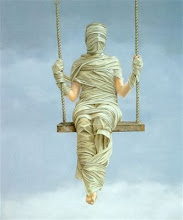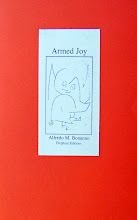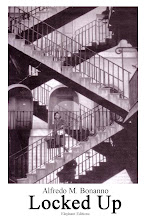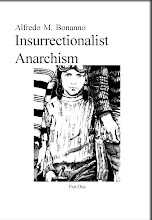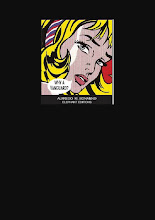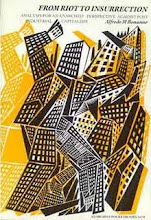Pantagruel, anarchist review of social, economic, philosophical and methodological analysis, 3 issues from January - October 1981
An anarchist review of social, economic, philosophical and methodological analysis. The problems which interest us most must not be closed within the narrow field of specialists, but brought to light through reading and debate among comrades. Even if this costs an effort, especially at first, it is something that requires to be done. Theory is not something that is different to practice; this desired difference originates in a misunderstanding. When we think of theory we imagine analyses full of numbers and figures, difficult words and complex concepts; when we think of practice we imagine beautiful actions of struggle, strong and not so strong organisations, realisations and transformations.
In fact it is necessary to distinguish between theory and theory, just as it is necessary to distinguish between practice and practice. Exploitation, with its terrible repressive organisations is “practice” on a grand scale, but a practice very different to the actions and organisations of liberation put into effect by the exploited. In the same way the “theory” which serves as an ideological cover for exploitation is very different to the theory which characterises the conditions of liberation.
During its progression the whole of the revolutionary movement develops a series of actions which constitute a practice, which is at the same time theory. One could say that the revolutionary movement is its own theory. In turn this movement, as a minoritarian component of a wider class front, constitutes a part of the wider practice realised by the exploited as a whole. The latter is also its own theory, therefore the revolutionary movement is a part of the theory and practice of the general class movement of the exploited.
The imbalance between those two practices (which are also theory) is demonstrated by their different positions concerning the self-organisation of struggles. The revolutionary movement in general possesses a greater awareness of the need for the selforganisation of the struggles than does the whole front of exploited or the class front at the moment. In turn, within the revolutionary movement itself, the anarchist movement possesses a still more acute consciousness of self-organisation, and comes to find itself in an even wider situation of imbalance with the class front as a whole.
It is precisely from this greater imbalance that there emerges a more pressing need for anarchists to widen their theory. This, as we have said, they do through being such, that is in their actions as anarchists, and in this - as part of the revolutionary movement - are their own theory. But it is precisely their actions that show how the self-organisational struggle project is far from being realised in the way outlined by anarchists : the class front is more fractured and contradictory than ever. It is necessary to go into the reasons for this lack of balance more deeply than the action in course is able to do. In saying this we do not mean that it is necessary to stop and reflect, (in which case we would be denying the range of theory resulting from action), but that it is necessary to integrate this with detailed and deepened analyses which consent us to modify our action at the opportune moment in order to better attain the desired results.
Once again, analyses for action: theory which finds its justification in the practice of attack against the exploiters and, becoming comprehensible in this key, becomes action itself.
No indulgence towards superficial and approximate attempts concealing themselves behind simplistic analyses which then translate themselves into brief catechisms placed into the hands of comrades with the badly concealed aim of indoctrinating them from above. What we will publish - within the limits of our possibilities - will seek to have its own depth of research and thought, its own wealth of particulars and instruments, its own difficulty of problem and theories. We shall not try to deceive comrades by making things out to be easier than they are concerning the analyses we manage to elaborate in the various fields we explore. Certainly no unnecessary recourse will be made to linguistic technicalities when that can be done without altering the depth of the research and the completeness of the analysis; we shall also include brief explanatory notes when we need to have recourse to rather difficult concepts not considered to be of common usage.
Comrades will not find a review which serves up their meal already chewed and ready to be swallowed. The reading of Pantagruel will sometimes be an effort, but we consider that the time has come to go beyond the commonplaces of lack of engagement and superficiality.
Let us perfect the instruments of our revolutionary struggle together. Pantagruel has no other aim.
skip to main |
skip to sidebar

Some writings of Alfredo Maria Bonanno in English, or almost

Alfredo Bonanno was arrested on October 1st 2009 in Greece, accused of concourse in robbery. With him, anarchist comrade Christos Stratigopoulos.
Here are a few translations and part translations of a small portion of Alfredo's writing. This is a work in progress, many of the translations are as yet incomplete. Open links to find more of Alfredo's work.
Alfredo Bonnano Released
Nov. 22 Alfredo Bonnano was sentenced to 4 years imprisonment (which practically means that with the time served so far and the fact that he is over 70years old HE IS RELEASED
Christos Stratigopoulos (who took responsibility for the action)
was sentenced to 8 years and 9 months with the Greek law will probably be released at the end 2011
BY ANY MEANS NECESSARY
LINKS
click on any of these labels to read text
- "Community" sickness
- 1981 - Editorial
- A Critique of Syndicalist Methods
- A few notes on Sacco and Vanzetti
- A few notes on the revolutionary movement in Italy
- A little man in Singapore
- A million jobs
- A question of class
- Affinity
- After Marx autonomy
- Albania Laboratory of Subversion (Introduction)
- Anarchism and the national liberation struggle
- Anarchists and action
- AND WE WILL ALWAYS BE READY TO STORM THE HEAVENS AGAIN (Against amnesty)
- ANTI-INSTITUTIONAL MOVEMENT
- Are we modern?
- Armed Joy
- ARMED STRUGGLE. SOME REFLECTIONS.
- Autonomous base nuclei
- beyond syndicalism
- Beyond workerism
- But what is the imaginary?
- Class War
- Comiso - Organizational document of the self-managed leagues
- Considerations on illegality
- Dissonances (Introduction)
- Elephant Editions 1986
- Excluded and included
- Farewell to claiming
- Feral Revolution (Introduction)
- FICTITIOUS MOVEMENT AND REAL MOVEMENT
- For an Antiauthoritarian Insurrectionist International - Proposal for a debate
- From riot to insurrection
- From the centre to the periphery
- Good technology
- Guerilla Extraordinary
- Habits and idols
- Hegel
- I know who killed chief superintendent Luigi Calabresi
- Illegality
- Illness and capital
- Informal organisation
- Insurrection
- Internationalism
- Introduction to Sabate
- Introduction to Anarchism and Violence
- Introduction to Bratach Dubh English edition of Malatesta's Fra Contadini
- Introduction to Insurrectionalist Anarchism
- Introduction to Strange Victories
- Introduction to The Conquest of Bread
- Involuntary aspects of voluntary work
- Let's destroy work
- LET'S DESTROY WORK. New introduction
- Let's keep our feet on the ground please
- Lightening Conductors and Stand-ins - more shots of non-news
- Lightning Conductors and Stand-ins
- Lightning Conductors and Stand-ins (cont.)
- Locked up
- Looking forward to self-management
- Loss of language
- More on internationalism
- National Liberation Struggle
- nineteen years on
- No more crises
- Non-news about drugs
- Non-news about racism
- Ode to the Uniform
- On Feminism
- One's life on the line
- Order and chaos
- Otto Ruhle (Introductory Note)
- OUR ROLE IN THE PRESENT CONFLICT
- Palestine mon amour
- Pantagruel anarchist review
- Pinelli
- Prison and Prisoners’ Struggles - Introduction
- Propulsive Utopia
- Quality and the factory
- Restructuring Capital and the new democracy
- Revolution - Violence - Antiauthoritarianism
- REVOLUTIONARY VIOLENCE
- Science and the social revolution
- Self-management
- Severino Di Giovanni in Argentina 1923-1931 by Osvaldo Bayer
- Social banditry
- SOME NOTES -
- Space and Capital
- Stirner
- Stop the City? From information to attack
- Strategy and Methods
- Streamlined production
- The "end" of the crisis
- The aesthetics of anarchism
- The anarchist tension
- The area of autonomy and the anarchist movement in Italy
- The armed wing of science
- The Cruise missile base at Comiso can be prevented
- The ethical bank
- The insurrectional project
- THE LANGUAGE OF TECNICS -
- The logic of insurrection
- The moral split
- THE NECESSARY DESTRUCTION -
- The priority of practice
- The refusal of arms
- The revolutionary project
- The revolutionary struggle
- The significance of an insignificant event
- The struggle for self-managed social space
- The tyranny of weakness
- The whole and the part
- The young in a post industrial society
- Theory and action
- Towards anarchist antimilitarism
- TOWARDS THE GENERALISATION OF ARMED STRUGGLE
- TRANSFORMATION IN THE WORLD OF WORK AND SCHOOL -
- TRUTH -
- Unemployment in Italy - How come everything doesn't explode?
- Untitled
- Violence and non-violence
- What are anarchists
- What can we do with anti-fascism?
- Why a vanguard?
- Why Insurrection
- World domination in a few words

